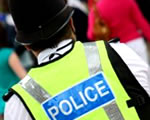 Go to main content
Go to main content
Archive Website of the UK government
Please note that this website has a UK government accesskeys system.
Main menu
Page menu
Crime and justice

What you can do to stay safe from terrorism

The police and the security service are working to keep you safe from terrorism, but there are some things you can do on your own. Find out more about what to look out for, and how to keep you and your family as safe as possible.
What you know about terrorism can help
If you suspect somebody you know may be involved in terrorism in any way, reporting it to police and intelligence agencies is the best way to keep yourself, and many other people, safe.
There are several ways to report your concerns to people who can help:
- in an emergency call 999
- call the police counter-terrorism hotline on 0800 789 321
- contact the Security Service (MI5) directly through their website
You can remain anonymous, and you may save lives.
Staying safe at home
It is always a good idea to take sensible precautions in case of any emergency, whether it’s a natural disaster or terrorism. You could easily lose access to power, water, telephones, and roads, so it's good to be prepared.
Keep a reasonable store of batteries at home, as well as:
- a battery-powered torch
- a battery-powered or wind-up radio
- ready-to-eat or tinned food
- bottles of water
It’s a good idea to have phone numbers of your local police, council, utility companies and family members handy in one place, or programmed into your mobile phone.
Make sure you know where the main switches for electricity, water and gas are located in your home, as you may need to turn them off in an emergency.
Staying safe at work
If you work in a crowded office or a busy location, or in the kind of operation (like a power generating plant) that might be targeted, stay alert.
Intelligence agencies suggest that you should:
- have a good look around your work place and establish an awareness of what should and should not be there
- trust your instincts - if you feel something is wrong, tell someone in charge
- keep an eye on people passing through your workplace delivering goods or services, or making repairs
For their part, business owners and managers should:
- have escape plans in place in case of attack
- work with the police and the fire brigade to ensure their emergency plans, such as fire evacuation plans, are up-to-date and regularly exercised
- make sure their staff know emergency procedures
- ensure their accounting practices are designed to pick up any odd or unexpected changes
- keep computer systems secure
- verify that employees are who they say they are by checking their references and records
Staying safe when travelling abroad
All UK airports have strong security measures in place. If you’re travelling, find out what items you can carry in your hand luggage by checking on the Department for Transport’s website.
Check the Foreign Office’s website to find out any concerns about countries or regions you’re considering travelling to.
Travel sensibly, and do not venture into areas where UK residents may be targets for kidnapping or other attacks.
 Facebook
Facebook Twitter
Twitter StumbleUpon
StumbleUpon Delicious
Delicious Reddit
Reddit